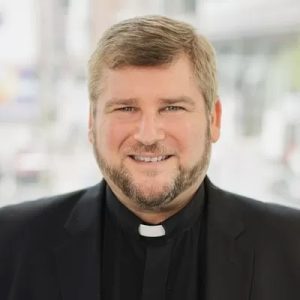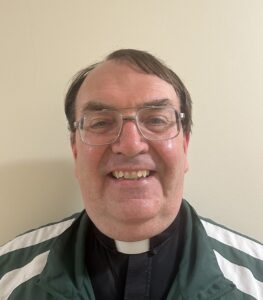June 8th, 2025
Pentecost: the End of the Easter Season and the Beginning of Ordinary Time:
The Solemnity of Pentecost, which we celebrate today, is another of the greatest feasts of the liturgical year. According to our present liturgical calendar, it is the last day of, the great finale of, the Easter Season (It used to be a season of its own; now it’s one and done). The mystery that we celebrate, that is, the great event that we celebrate which is beyond our complete understanding, is the coming of the Holy Spirit upon the Apostles and the Blessed Virgin Mary (and representatively, upon the whole Church). It falls on the 50th day after Easter (after 7 weeks, a week of weeks!). The name “Pentecost” is the name of the Jewish feast that was 50 days after Passover. It became a Christian Feast because that is when the Lord chose to send the Holy Spirit, making the true birthday of the Church. As we end the Easter Season and begin Ordinary Time on Monday, we are reminded that we are to live by the Holy Spirit of Jesus and His Heavenly Father, which fills the soul of every Christian. Living by the Spirit means obeying the Lord Jesus, instead of our own selfish desires. We are to produce the fruits of the Holy Spirit in our daily lives. Come, Holy Spirit, set our hearts on fire!
Parish Personnel Updates:
Please join us in welcoming two new members to our parish staff!
As you may know, Elaine Kroger will be leaving us next month to continue her career in teaching 3rd grade at St. James. We are grateful for her years of dedication to our parish and wish her well in her new endeavors!
Beth Scholl will be joining our ministry team to serve as Coordinator of Youth Faith Formation. She comes to us from St. Joseph, North Bend, and brings a great deal of knowledge and experience to the role!
Another exciting addition to our administrative team will be Chris Denman. He is an active parishioner with children at St. Ignatius, and is re-joining the workforce as our new Coordinator of Parish Communications! He will replace Amy Lesko who is pursuing another career opportunity at Our Lady of
the Rosary.
Finally, Rick Berning has unofficially retired by going part-time on the finance team. You may see him in
the office on Tuesday and Thursday mornings, unless he’s on the golf course!
We look forward to a prosperous year with our new team members!
-Fr. Umberg

 From the Future Pastor’s Desk
From the Future Pastor’s Desk  From the Temporary
From the Temporary